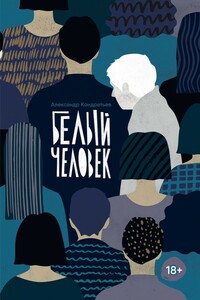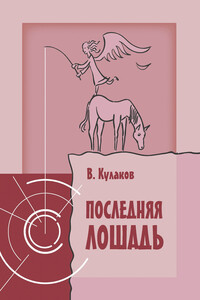36 Arguments for the Existence of God - [48]
It was Malik on trumpet, and Frank Wright on the tenor sax and vocals, and William Parker on bass, and Syd Smart, who was a Cambridge native, on the drums. Cass didn’t know much about jazz, but apparently, judging from the reaction of the audience and Roz, this was a night of miracles.
And it was, too. It was all new to Cass: Cambridge and jazz and a woman like Roz. He was swept off his feet. Even though she was older than he and far more experienced, having lived at the ends of the world for months on end, she made him feel as comfortable with himself as he had ever felt. He had the sense that whatever it was that he most liked about himself was what she liked, too.
He had gallantly walked her back to her place, a little apartment that was reached by way of a creaky outside flight of stairs and was attached to the second floor of a grand house on Francis Avenue, owned by what she called an “embalmed” couple.
“He used to be a Harvard English professor, and she was a Harvard professor’s wife, if you know what I mean. They’re straight from Central Casting. It was the wife who interviewed me. She’s so frail that I just wanted to pick her up and carry her up these stairs. She said her husband would have to meet me to approve me as a tenant. He greeted me with ‘I’m a Wilde man,’ and it took me a few beats to figure out he was talking about Oscar. I don’t know why he thought my knowing this about him was relevant to my renting the place. Maybe he got confused and thought I was a prospective graduate student. I’ve never seen him since, though she comes around to check on things once in a while. They built this addition to keep their daughter from running away from home during her stormy adolescence. Sometimes I get the creepy feeling that they’d had monitors installed, like in the spy movies, and that the old couple still tune in now and then, hoping for some kinky action. What do you say we make them happy?”
The brazen act came off with her clothes. Cass was startled by the tenderness of Roz. She was able to be tender, sexy, and hilarious all at once. They stayed up all night. Roz declared herself famished-“Orgasms burn calories!”-and jumped up and came back with a pint of Cherry Garcia and two spoons, which they ate facing one another cross-legged in bed. Any questions Cass might still have had about how women are anatomically put together were conclusively answered. Living among the Onuma, she’d told him, had cured her of the cult of female modesty. By morning, he had stopped being alarmed by her. She was more Roz Margolis, a Jewish girl who had grown up on the Upper West Side and been sent to the Ethical Culture school before going off to Frankfurter, than she was Suwäayaiwä, warrior anthropologist. By noon, he still didn’t know exactly how much of her to believe, but he did believe himself in love. The strange thing was, so did Roz.
“I’m crazy about you,” she announced as they drank coffee in her kitchen. She’d made them some toast, too, and scrambled up a mess of eggs with butter and cumin.
“You sure you’re not just crazy?”
“Me? No, I’m the sanest person I’ve ever met. You’ll see when you get to know me better, Cass. I’m the sanest person you’ve ever met, too. We’re both sane. That’s what’s so crazy about us.”
“So I’m sane, too. How do you know?”
“Our type can always recognize each other. We’re like werewolves able to sniff each other out.”
They fell into couplehood with relative ease. The only topic, and it was hardly an insignificant one, on which Cass and Roz agreed to disagree was Jonas Elijah Klapper. Roz didn’t view the Extreme Distinguished Professor of Faith, Literature, and Values in quite the same way as Cass did:
“What?” Roz bolted up in bed so abruptly that her womanly breasts bounced with a soft little plop.
Cass immediately regretted the words out of his mouth even as he heard them.
“What did you say he said to you?”
It was too late. He had told her the story of how he had gone, with an undergraduate’s fear and trembling, to the posted office hour of Columbia’s pre-eminent professor, the one who stood before his crowded undergraduate course without any notes, leaping from personal reminiscences to quoted stanzas to revelations of the ontological scaffolding that underlies genius, and that at the end of the two-hour private session the great man had murmured, “I sense the aura of election upon you.”
Cass had let the fire of Roz mix with the fire of Jonas Elijah Klapper, and, mixing his fires, he had transgressed.
“What did you say he said to you?” she repeated.
He closed his eyes and pronounced the words with which Jonas Elijah Klapper had anointed him.
Roz had burst into laughter, collapsing backward on the bed and writhing. When she finally found her voice, she rasped out, “I’m sorry! I’m so sorry! But I thought you had said that he sensed the odor of luckshen on you-and, frankly, I don’t know which line is funnier!”
“Luckshen” is the Yiddish word for noodles, and it was the first time Cass didn’t find Roz’s laughter irresistible.

В книге рассказывается история главного героя, который сталкивается с различными проблемами и препятствиями на протяжении всего своего путешествия. По пути он встречает множество второстепенных персонажей, которые играют важные роли в истории. Благодаря опыту главного героя книга исследует такие темы, как любовь, потеря, надежда и стойкость. По мере того, как главный герой преодолевает свои трудности, он усваивает ценные уроки жизни и растет как личность.

В городе появляется новое лицо: загадочный белый человек. Пейл Арсин — альбинос. Люди относятся к нему настороженно. Его появление совпадает с убийством девочки. В Приюте уже много лет не происходило ничего подобного, и Пейлу нужно убедить целый город, что цвет волос и кожи не делает человека преступником. Роман «Белый человек» — история о толерантности, отношении к меньшинствам и социальной справедливости. Категорически не рекомендуется впечатлительным читателям и любителям счастливых финалов.

Кто продал искромсанный холст за три миллиона фунтов? Кто использовал мертвых зайцев и живых койотов в качестве материала для своих перформансов? Кто нарушил покой жителей уральского города, устроив у них под окнами новую культурную столицу России? Не знаете? Послушайте, да вы вообще ничего не знаете о современном искусстве! Эта книга даст вам возможность ликвидировать столь досадный пробел. Титанические аферы, шизофренические проекты, картины ада, а также блестящая лекция о том, куда же за сто лет приплыл пароход современности, – в сатирической дьяволиаде, написанной очень серьезным профессором-филологом. А началось все с того, что ясным мартовским утром 2009 года в тихий город Прыжовск прибыл голубоглазый галерист Кондрат Евсеевич Синькин, а за ним потянулись и лучшие силы актуального искусства.

Семейная драма, написанная жестко, откровенно, безвыходно, заставляющая вспомнить кинематограф Бергмана. Мужчина слишком молод и занимается карьерой, а женщина отчаянно хочет детей и уже томится этим желанием, уже разрушает их союз. Наконец любимый решается: боится потерять ее. И когда всё (но совсем непросто) получается, рождаются близнецы – раньше срока. Жизнь семьи, полная напряженного ожидания и измученных надежд, продолжается в больнице. Пока не случается страшное… Это пронзительная и откровенная книга о счастье – и бесконечности боли, и неотменимости вины.

Книга, которую вы держите в руках – о Любви, о величии человеческого духа, о самоотверженности в минуту опасности и о многом другом, что реально существует в нашей жизни. Читателей ждёт встреча с удивительным миром цирка, его жизнью, людьми, бытом. Писатель использовал рисунки с натуры. Здесь нет выдумки, а если и есть, то совсем немного. «Последняя лошадь» является своеобразным продолжением ранее написанной повести «Сердце в опилках». Действие происходит в конце восьмидесятых годов прошлого столетия. Основными героями повествования снова будут Пашка Жарких, Валентина, Захарыч и другие.

В литературной культуре, недостаточно знающей собственное прошлое, переполненной банальными и затертыми представлениями, чрезмерно увлеченной неосмысленным настоящим, отважная оригинальность Давенпорта, его эрудиция и историческое воображение неизменно поражают и вдохновляют. Washington Post Рассказы Давенпорта, полные интеллектуальных и эротичных, скрытых и явных поворотов, блистают, точно солнце в ветреный безоблачный день. New York Times Он проклинает прогресс и защищает пользу вечного возвращения со страстью, напоминающей Борхеса… Экзотично, эротично, потрясающе! Los Angeles Times Деликатесы Давенпорта — изысканные, элегантные, нежные — редчайшего типа: это произведения, не имеющие никаких аналогов. Village Voice.